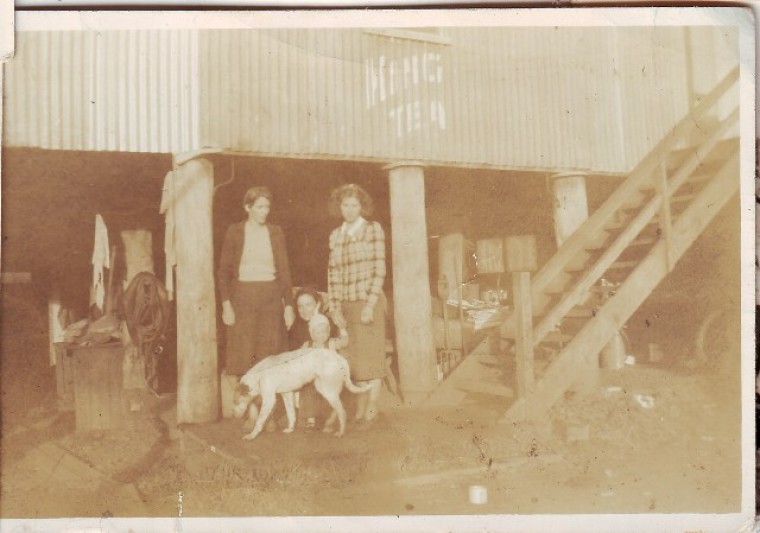

In recent months with Australian Governments (Federal and State) talking along with the chattering classes I was pondering the 'new deal' and re-branding FDR's 1933-37 'New Deal' in America and therefore it a proper course to compare one with the other.
A helpful article from The Conversation written by Cala A Katz whose pedigree is the Attorney and Labor Studies Professor, School of Management and Labor Relations at Rutgers University (US) spells out the American situation – FDR and today.
One particular FDR quote captured my attention: 'When he introduced the federal minimum wage in 1933, President Franklin D Roosevelt said, "No business which depends for existence on paying less than living wages to its workers has any right to continue in this country. By living wages, I mean more than a bare subsistence level. I mean the wages of a decent living." '
The story of the New Deal can be googled and read on any number of sites. Essentially it was a political strategy to break the Great Depression and everyone from big business and to the street sweeper in America was calling out for a deal breaker.
Unlike Nazi Germany where their nation was calling for a 'strong man' to break the industry, commerce and poverty impasse (found and voted in Adolf Hitler's ultra nationalism), Americans sought a collective voice, a voice of reason and compromise on all sides.
They were ready for FDR and he was the vehicle through which with his charm, intellect, determination, political nous, big end of town support, and trades unions links alike, bought the nation to an agreement – notwithstanding some critics voiced contrary political views.
The results such critics could only stand in awe and watch as people of good-will got behind the 'New Deal' for the betterment of the nation and therefore the trickle effect, down to everyone. No one today is in any doubt that in the years leading up to WWII and the US being the arsenal of democracy, it gave the American economy the boost required to steam itself to the affluence and opulence of the fifties and on throughout the 21st century.
FDR's 'New Deal' was the undisputed engine room of the American success story of the last century and proved to be the boom for the middle classes that gave rise to many an American dream. Hollywood was the classic illustrator and propagandist of such dreams and why millions flocked to America to carve out their dream. The elephant in the room in all of this were the poor, the disenfranchised, anyone who, as they say, 'didn't fit in.'

Australia very different
Australia was very different to America. It's population prior to WWII was around seven millions having been badly mauled in numbers from WWI. It's philosophy in the economy was firmly under British thinking and philosophical management, and the Trades Unions were constantly on the hustings.
In the '70s it was said that Australia runs along pretty well with its tri-opoly: Government, Big Business and Trade Unions. If it's not going to pla, the Government blames the Trades Unions, the Trades Unions blame Big Business and Big Business blames the Government. Then they all settle down in the chook pen and work it out.
Australia was the first democracy to give women the vote. Australia was the first democracy to see a Trades Union based Government (The Australian Labor Party) to gain office and become, in effect, the establishment. Australia was the first to introduce age pensions along with welfare provisions for those unable to either get work or medically unfit to work.
Australian Labor Prime Minister Paul Keating on election night 1993 having won an unexpected victory in the 'un-losable election' against John Hewson the Liberal Coalition Opposition leader exclaimed in his victory speech that those who who are unfortunate will be bought along with the nation to these better things.
There is this national historical sense of collegiality in the Australian psychic that you won't be left behind. It stems way back, some suggest to the great droughts of the late 1800's, the shearer's strike of the 1890's, and certainly to WWI where the greater sin of all was to leave a mate behind. The Great Depression saw many a family provide meals and welfare for the swagmen on the hunt for a job – anywhere, anything, to bring in a little money for the family back in the city.

2015
It is now eight years after the GFC, and this historical landmark (or should I say landmine) is at the back of everyone's mind. The upside was that policies the Australian Government put in place by then Prime Minister Kevin Rudd reduced the fiscal heartbreak of the nation, although many Australians lost huge swathes of their superannuation savings.
The downside was that to pay for it all, the abundant Australian reserves that the Howard / Costello Government over 11 years established was not only eaten up but left a huge debt at the feet of the next Coalition Government led by Prime Minister Tony Abbott and Treasurer Joe Hockey.
The people will ultimately determine whether to give the Abbott team further room to bring this whole nasty business under better management or fly into the unknown with free spending Laborites whose values have traditionally been to support the working people. Who picks up the tab?
Christian ministry
In both America and Australia, the one solid uncompromising body of people to provide succour and basic food and housing support have been the Christian churches and their missions.
Right from the pages of the Acts of the Apostles this has been at the very forefront of the Church's welfare genre in terms of ministry. In every age, regardless of the era, politic, pestilence, military, it has been the Christian community that has provided.
I keep repeating myself in this column, but it has never been disputed at any level, Dr David Milikin, a Uniting Church minister who wrote the 1982 book 'The Sunburnt Soul' later to be aired on Compass (ABC TV) – that the Christian Church in Australia provides 82% of the nation's welfare.
It's much the same today, regardless of where those welfare dollars come from (Government, Corporate, Philanthropy), the feet on the ground who provide - are the Christian Churches. This is community value. This is not a new deal, this is an old and trusted old deal!

Dr Mark Tronson is a Baptist minister (retired) who served as the Australian cricket team chaplain for 17 years (2000 ret) and established Life After Cricket in 2001. He was recognised by the Olympic Ministry Medal in 2009 presented by Carl Lewis Olympian of the Century. He mentors young writers and has written 24 books, and enjoys writing. He is married to Delma, with four adult children and grand-children.
Mark Tronson's archive of articles can be viewed at http://www.pressserviceinternational.org/mark-tronson.html